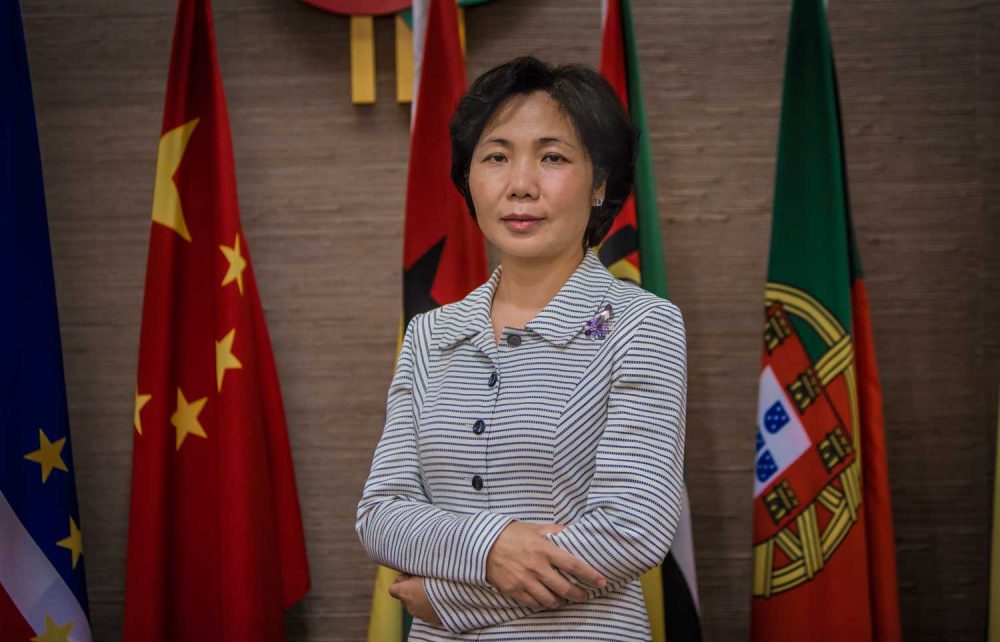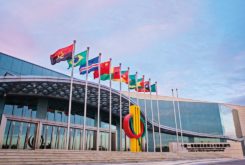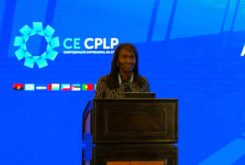The three most important Portuguese-speaking countries represented at the Forum for Economic and Trade Cooperation between China and the Portuguese-speaking countries – Brazil, Angola and Portugal – seem to finally be interested in participating more extensively in the institution.
During the 15th anniversary celebration of the creation of the Forum in Macao, the Brazilian ambassador to China announced that Rafael Rodrigues Paulino, a diplomat stationed at the Brazilian Consulate General in Hong Kong, will thereon be responsible for the follow-up the Forum’s affairs. Previously, Brazil’s seat at the Forum Macao relied on the Brazilian Embassy in Beijing.
Brazilian ambassador Marcos Caramuru de Paiva also reaffirmed that his country is interested in working more closely on the political and economic aspects of the cooperation between China and the Portuguese-speaking countries.
This is the result of discussions between the new leaders of the Forum Macao, led by the General Secretary Xu Yingzhen, and the countries that hold greatest economic and commercial importance in the Forum: Angola, Brazil and Portugal.
Angola will also strengthen its presence by appointing Belarmino Barbosa, who previously divided his time between the Forum where he was a delegate and the Consulate General of Angola in Macao where he held the position of trade representative.
The appointment of Belarmino Barbosa is in accordance with what Deputy Secretary General Rodrigo Brum said recently when he stated that one of the existing priorities was that all delegates from Portuguese-speaking countries were fully dedicated to the Forum Macao and did not split their time with other institutions.
Not long ago, after meeting his Chinese counterpart Wang Yi in Lisbon, the foreign minister of Portugal, Augusto Santos Silva noted that the Forum Macao is the right instrument of cooperation for China and the Portuguese-speaking countries.
One of the steps Portugal will implement within the Forum is to change the “status” of the delegate of Portugal. Maria João Bonifácio, who is the representative of the Agency for Investment and Foreign Trade of Portugal (AICEP) and the Economic and Commercial Counselor at the Consulate General of Portugal in Macao, may become a full-time delegate at the Forum in the near future.
With Angola, Brazil and Portugal’s new approaches; the recent nomination of new delegates from Cabo Verde and São Tomé and Principe to the Forum; new ambassadors from Angola and Mozambique in Beijing and a new Deputy General Secretary appointed by the government to the Forum Macao (Gloria Ung), it seems that conditions are ripe for the Forum to effectively become a platform between China and the Portuguese-speaking countries.
In any case, it is absolutely necessary to further promote the potential of the Forum as a link with the eight Portuguese-speaking countries. One of the challenges faced by the Forum is the uncertainty on how to take advantage of the opportunities given to them.
Forum Secretary General Xu Yingzhen has been publicly acknowledging the need to better explain what the Forum is doing and how it can be leveraged by the countries that make up the organisation.
Xu has repeatedly explained that the Forum does not sponsor businesses but ensures that it can organise all the networking meetings and contacts that are requested either by the delegates of the Portuguese-speaking countries that are posted in the Forum or by governmental and private entities of China.
However, these aspects need to be clearly complemented by the eight countries themselves to be able to attract investment, business, and partnerships.
China’s upcoming announcement of the plan for the Guangdong-Hong Kong-Macao Greater Bay Area – bringing together nine cities in an area of 56,000 square kilometers and a population of 66.72 million – will be the biggest challenge facing Macao since China took over the administration of the territory in 1999. Business opportunities are endless between China and Portuguese-speaking countries if they are in Macao at the right time.
It may have gone unnoticed, but the recent visit to the Forum Macao by the director of the China Liaison Office in Macao, Zheng Xiaosong is a clear message that the Forum Macao continues to be important for China in the context of its relationship with the Portuguese-speaking countries.
As an African diplomat said to the CLBrief “It is now or never. All the conditions are ripe for the leap forward by the Forum. It’s time that the countries represented in the institution have a more innovative way to work and use the contacts and connections that China is providing.”
The Forum Macao is an organisation created in 2003 by Chinese initiative with the support of the Portuguese-speaking countries.The Forum is headed by a Secretary-General appointed by the China´s MOFCOM named Xu Yingzhen and three Deputy Secretary Generals: Ding Tian also appointed by MOFCOM, Rodrigo Brum by the Portuguese-speaking countries and Gloria Ung by the Macao government.
The Forum Macao has representatives from Angola, Brazil, Cabo Verde, Guinea-Bissau, Mozambique, Portugal, Timor-Leste and São Tomé and Príncipe.[:]




